FlexDeploy utilizes SSH to communicate with remote server (known as Endpoint in FlexDeploy topology). For Microsoft Windows, Cygwin was required to establish SSH connectivity. I had described use of Copssh as well in a previous blog entry. Copssh is based on Cygwin. Now FlexDeploy 5.3 has introduced connectivity using Windows SSH server which is available for Windows 2019 Server and Windows 10. In addition, this support also works with third party SSH servers like Bitvise SSH Server.
Let’s examine this in detail. We have Windows server enabled with SSH Server, see below.
 Let’s check this connectivity by using SSH client like Putty.
Let’s check this connectivity by using SSH client like Putty.
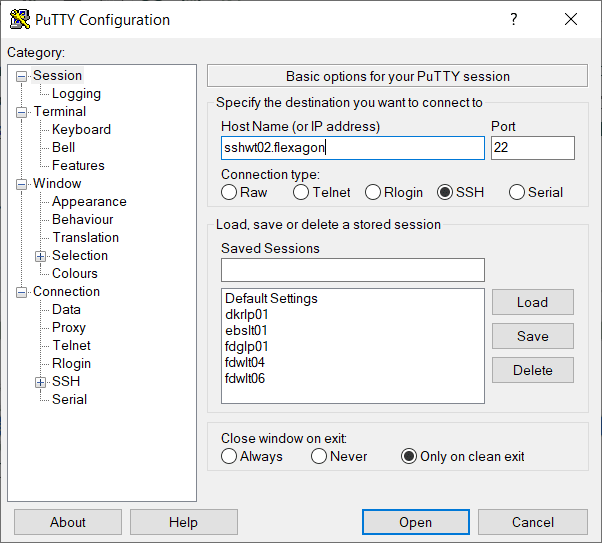 When prompted, login using proper credentials.
When prompted, login using proper credentials.
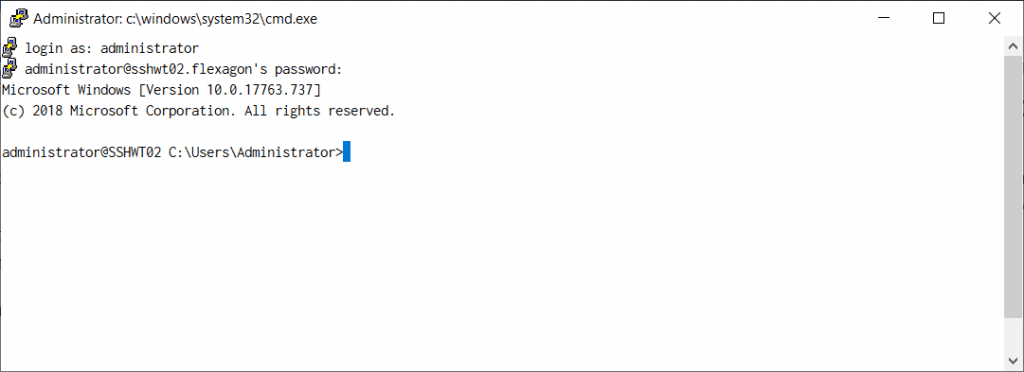 Now you can run commands on this prompt.
Now you can run commands on this prompt.
Let’s see how this works with FlexDeploy.
- Connection type will be Windows – SSH in this case. If you are using Cygwin then connection type will be Windows – SSH (Cygwin).
- FlexDeploy requires Java and a temporary directory for execution of plugin operations.
- Authentication is supported by using user/password, user/ssh key or user/ssh key with passphrase. Please note that when using password, it it can be securely stored in FlexDeploy credential store or any external credential store of your choice.
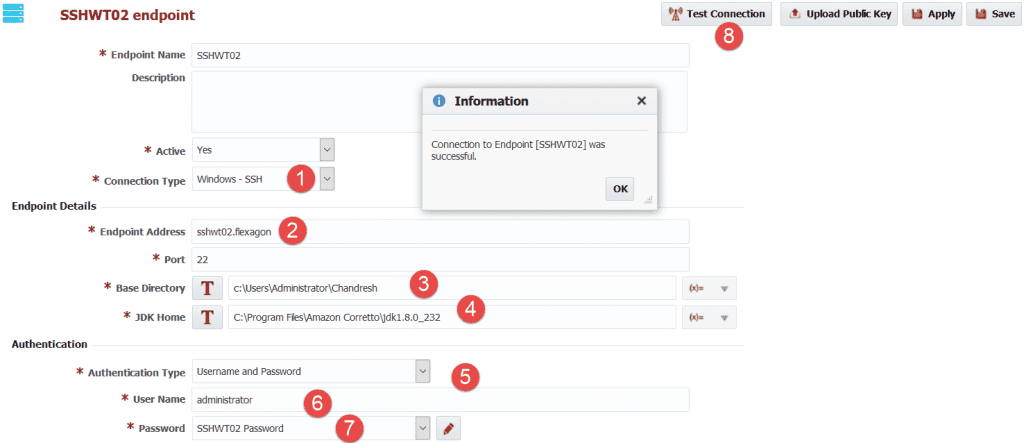 Now let’s review same with Bitvise SSH server. Here I have Bitvise SSH server configured and started. This is a commercial option that is easy to configure and could be a valuable option for other Windows versions.
Now let’s review same with Bitvise SSH server. Here I have Bitvise SSH server configured and started. This is a commercial option that is easy to configure and could be a valuable option for other Windows versions.
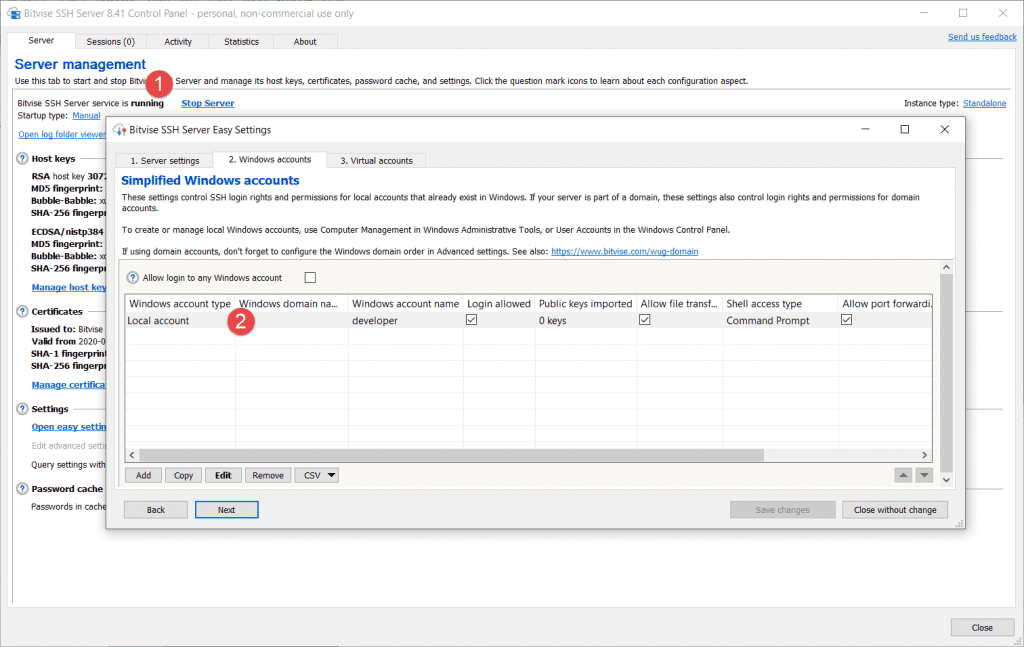 The FlexDeploy Endpoint in this case will be configured same as Windows SSH connection.
The FlexDeploy Endpoint in this case will be configured same as Windows SSH connection.
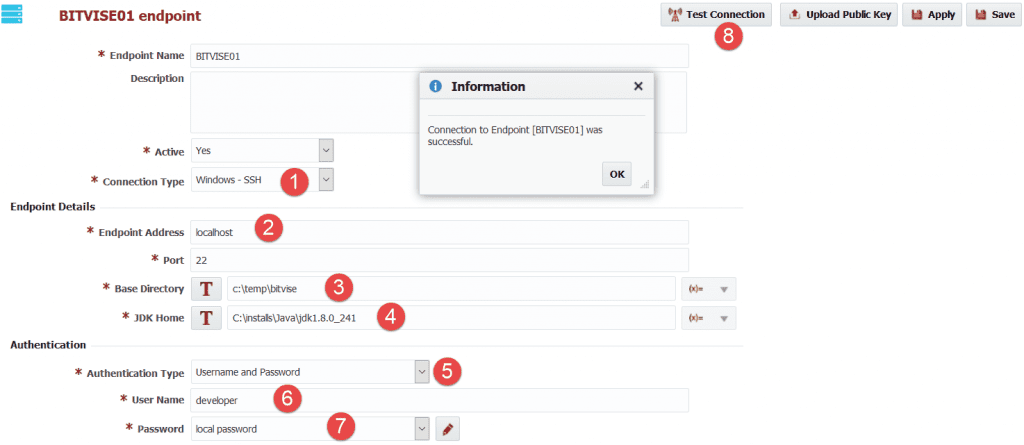 Once SSH connectivity is established, you can automate build/deploy processes using FlexDeploy plugins.
Once SSH connectivity is established, you can automate build/deploy processes using FlexDeploy plugins.



